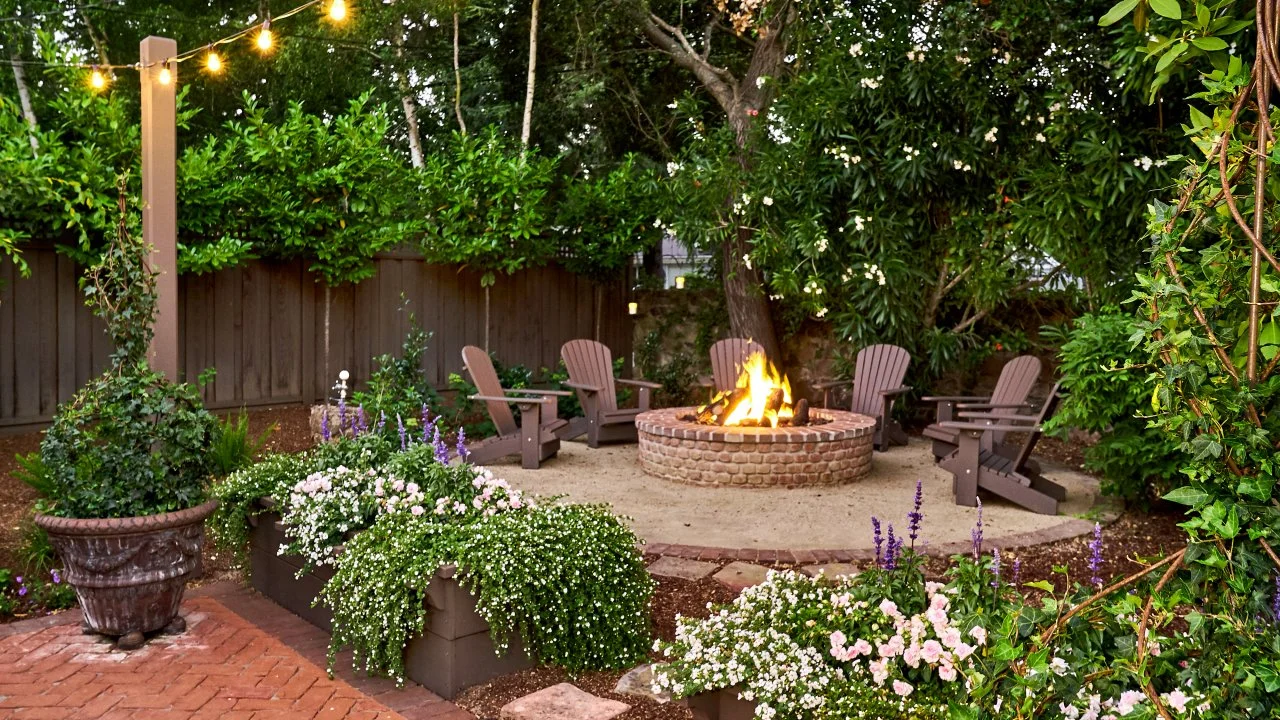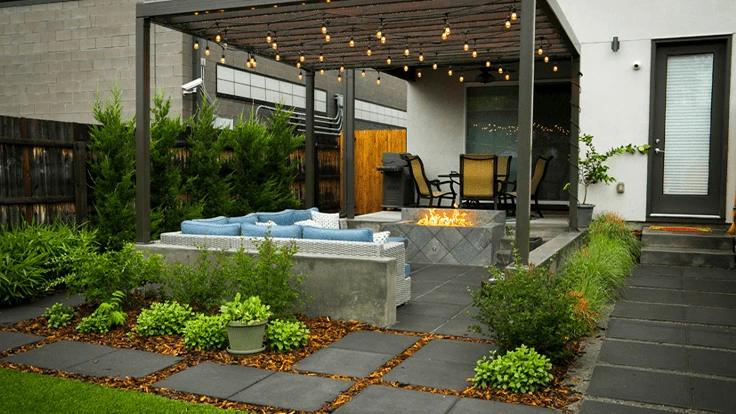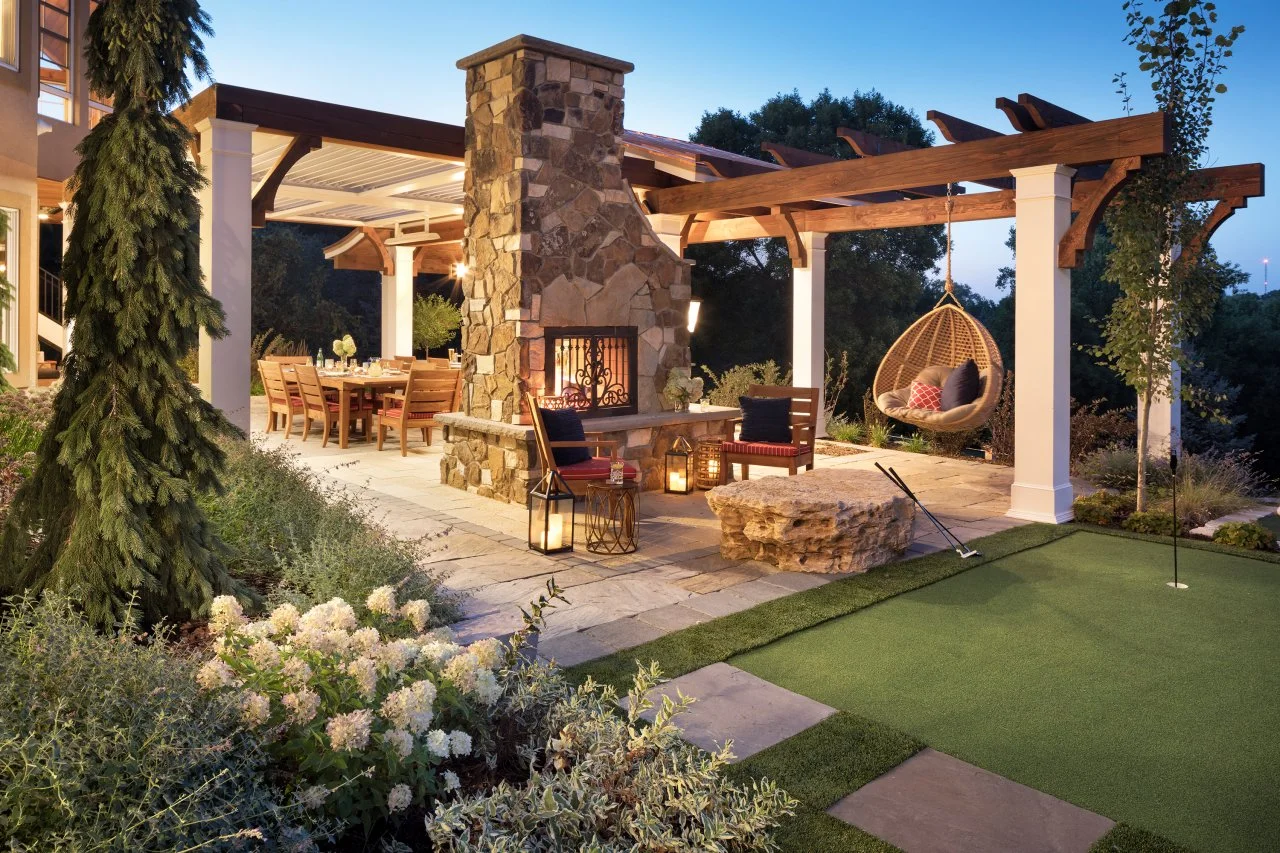How to Customize Outdoor kitchens to Match Your Outdoor Aesthetic
Transform Your Room With Expert Outdoor Landscape Design Solutions: From Patios to Outdoor Kitchens
Changing outside areas requires expertise and mindful preparation. Expert landscape design services can boost a residential property's performance and looks. From developing inviting patio areas to crafting completely geared up exterior kitchen areas, these specialists bring useful knowledge. They consider neighborhood climates and sustainable techniques, ensuring each job aligns with the house owner's vision. What are the key aspects to contemplate when initiating such a makeover? The responses could amaze you.
The Advantages of Specialist Outdoor Landscape Design

Designing Your Perfect Patio
When intending the perfect outdoor patio, homeowners need to mirror on both performance and appearances to produce a space that enhances their way of living. A well-designed patio area functions as an expansion of the home, offering a suitable area for leisure, enjoyment, or dining outdoors. Trick elements to ponder include the shapes and size of the patio area, which ought to balance with the bordering landscape and home architecture.Material selection is likewise crucial; options such as natural stone, pavers, or timber can enhance the overall appearance while offering sturdiness. Homeowners must believe about furnishings arrangement, making certain sufficient room for motion and convenience. Integrating components like shade frameworks, fire pits, or planters can include character and utility.Lighting plays a substantial role in patio area design, improving setting and usability throughout evenings. Eventually, an attentively created patio can raise exterior living experiences and enhance residential property value.
Developing an Outdoor Kitchen Area
Producing an outside cooking area improves the capability and enjoyment of any type of exterior space. Trick features, such as grills, kitchen counters, and storage space, play a crucial function in the layout and format of this culinary place. By considering essential aspects, house owners can craft a room that flawlessly mixes with their landscape while fulfilling their cooking needs.
Important Kitchen Features
An outdoor kitchen area can change a yard right into a cooking place, enhancing both functionality and social communication. Crucial kitchen attributes consist of a durable grill, which works as the focal point for outside food preparation, permitting numerous cooking designs. Counter room is essential, offering adequate space for food prep work and offering. A sink is also essential, making it possible for easy clean-up and facilitating cooking tasks. Furthermore, including a refrigerator guarantees active ingredients and drinks remain fresh and easily accessible. Storage space solutions, such as cupboards or racks, help maintain company and effectiveness. Integrating weather-resistant materials assures longevity and longevity, making the exterior kitchen area a dependable area year-round. Together, these attributes produce a welcoming environment for family celebrations and amusing visitors.
Design and Format Tips
While creating an outdoor cooking area, careful idea of the design can significantly boost both performance and looks. Sod installation toronto. An efficient layout starts with zoning, dividing the area right into cooking, eating, and preparation locations. Placing the grill near the food preparation zone streamlines the cooking procedure, while guaranteeing adequate counter space for meal setting up is vital. Incorporating a dining location that enables very easy movement motivates social communication. Additionally, incorporating storage space solutions such as cupboards and drawers maintains the room organized. It is very important to assess the circulation of foot traffic, preventing blockage by maintaining clear paths. Ultimately, utilizing durable products that withstand outside conditions assurances durability, while thoughtful illumination can produce a welcoming setting for night celebrations

Enhancing Visual Charm With Landscape Design
Enhancing visual allure via landscaping involves a cautious balance of design elements that attract focus and develop an inviting environment. Strategic plant website placement can highlight architectural functions, while thoughtful hardscaping adds structure and impact. Together, these aspects transform the outside of a property, making an enduring impact on site visitors and passersby.
Layout Elements That Astound
Engaging layout elements play an essential duty in enhancing a residential property's aesthetic charm, as they create a welcoming first impression for site visitors and passersby alike. Thoughtfully made features, such as ornamental paths, elegant secure fencing, and vivid flower beds, add to a cohesive visual. Distinct centerpieces, like a stylish water attribute or a striking sculpture, can draw focus and trigger interest. In addition, well-placed outside lights not only illuminates paths however also highlights architectural information during the night. Incorporating multi-level landscapes with differing textures and colors adds depth and measurement, creating a vibrant visual experience. Eventually, these captivating design aspects work sympathetically to raise the total appeal of a home, making it stick out in the community.
Strategic Plant Positioning
Strategic plant placement greatly influences a residential or commercial property's aesthetic charm, complementing the fascinating design components currently in place. By attentively picking and positioning plants, home owners can produce an unified blend of shade, texture, and elevation that attracts the eye. Positioning taller plants in the direction of the back and shorter ones in front develops deepness. In addition, making use of native plants can enhance the landscape's sustainability while offering seasonal passion. Vivid flowers can be intentionally positioned near pathways or entryways to invite visitors, while evergreen hedges offer year-round structure. Integrating seasonal blooms warranties recurring visual appeal. Generally, well-planned plant plans not only raise looks yet also add to a welcoming environment that reflects the homeowner's style and boosts the general residential or commercial property worth.
Hardscaping for Influence
While plants play an essential duty in landscape design, hardscaping aspects can significantly elevate a residential property's visual appeal by providing framework and aesthetic rate of interest. Functions such as stone paths, brick patios, and attractive wall surfaces create a strong structure that enhances plant. These aspects not only specify spaces however additionally guide site visitors with the landscape, enhancing the general experience. Furthermore, integrating outside illumination right into hardscaping can accentuate building details and develop a cozy, inviting atmosphere throughout the evening. Fire pits and outdoor cooking areas add performance, making exterior areas extra livable and enticing. By mixing hardscaping with soft landscaping, property owners can achieve an unified balance that astounds the eye and boosts property value. Eventually, thoughtful hardscaping changes outdoor areas right into sensational displays.
Choosing the Right Plants and Products
When picking plants and materials for outdoor landscaping, it is necessary to ponder elements such as environment, soil problems, and meant use of the room. A successful landscape layout integrates with the native environment, making certain that selected plants thrive and add to the overall visual. Local climate influences the option of flora; for example, drought-resistant selections are more suitable in deserts, while lavish plant suits extra warm climates.Soil high quality likewise plays a substantial function in plant health and wellness. Carrying out soil tests can aid identify pH degrees and nutrient content, directing the choice of ideal plant species. Furthermore, the desired use of the space-- be it for relaxation, enjoyable, or gardening-- will affect selections pertaining to plants and products. Sturdy, weather-resistant materials are crucial for hardscaping components like outdoor patios and walkways, while selecting plants that give year-round passion boosts the landscape's charm throughout the periods.
Lasting Landscaping Practices
Sustainable landscape design practices concentrate on producing outside areas that are environmentally responsible and resource-efficient throughout their life cycles. These practices stress using indigenous plants, which call for much less water and maintenance, thereby promoting biodiversity and lowering dependence on chemical fertilizers and pesticides. Rainfall gardens and permeable paving are typically carried out to take care of stormwater drainage, boosting groundwater recharge and minimizing flooding risks.Additionally, lasting landscaping integrates composting and natural compost to enhance soil health, lowering the need for artificial soil amendments (Sod installation toronto). Efficient watering systems, such as drip watering, are created to save water while guaranteeing plants receive ample hydration.Moreover, using recovered materials for hardscaping elements decreases waste and urges a round economic climate. With these methods, lasting landscape design not only boosts aesthetic charm yet also promotes ecological balance, contributing to much healthier environments for both communities and wild animals

Upkeep Tips for a Long-term Landscape
To ensure a landscape continues to be vibrant and healthy over time, normal maintenance is vital. Home owners must prioritize watering, ensuring plants get sufficient hydration, specifically throughout droughts. Mulching around plants not just saves moisture but likewise suppresses weeds and controls dirt temperature. Regular trimming of bushes and trees promotes healthy and balanced development and improves aesthetics.Moreover, grass care is vital; mowing at the proper elevation and freshening soil can enhance health and wellness and durability. Fertilizing plants appropriately, based on dirt examinations, sustains nutrient demands and fosters durable growth. In addition, pest administration should be proactive, employing integrated pest management strategies to reduce damage without harming valuable insects.Seasonal clean-ups, consisting of fallen leave elimination and debris clearance, assistance maintain an organized look. Finally, routine examinations for signs of illness or distress warranty prompt interventions, protecting the landscape's elegance and longevity. Adhering to these maintenance pointers will certainly result in a flourishing, long-term outside atmosphere.

Frequently Asked Inquiries
How much time Does the Landscaping Process Typically Take?
The landscape design process commonly differs in duration depending on task range and complexity. Smaller sized jobs may take a few days, while larger improvements can span a number of weeks to months, making certain thorough attention to information and top quality.
What Is the Average Expense of Outdoor Landscaping Providers?
The average cost of outside landscape design services varies commonly, generally varying from $1,000 to $10,000. Variables affecting this cost include job dimension, materials used, and the complexity of the layout and installation processes.
Do I Need a License for Outdoor Landscape Design Projects?
Establishing whether a license is required for outside landscape design jobs differs by place and project range. Sod replacement Toronto. Property owners need to get in touch with regional regulations and zoning laws to ensure compliance before starting any landscape design work
Can Landscape Design Providers Help With Drain Issues?
Landscape design solutions can successfully deal with drainage concerns by examining the site and implementing remedies such as appropriate grading, installation of water drainage systems, and the use of appropriate plants to take care of water overflow efficiently.
What Kinds of Warranties Are Supplied on Landscape Design Work?
The sorts of guarantees offered on landscape design work can differ substantially. Typically, they include protection for plant health, products, and workmanship, usually lasting from one to a number of years, depending on the provider's policies and warranties.